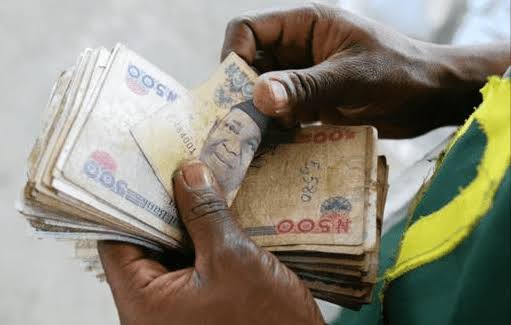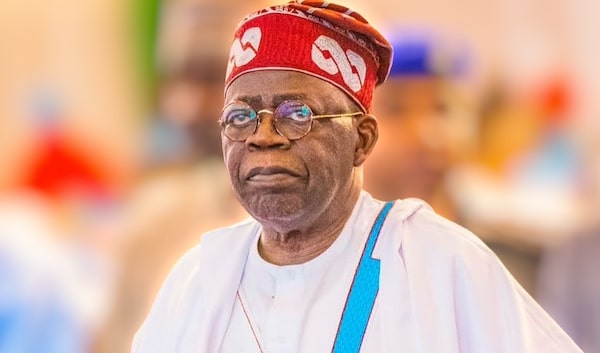No fewer than 42.69 million poor Nigerians were excluded from the Federal Government’s N5,000 monthly cash transfer since its inception in 2016, report revealed.
In June 2023 edition of the Nigeria Development Update, the World Bank disclosed that only 19.4 per cent of Nigerians benefitted from the programme.
With an estimated population of 207.25 million (based on World Bank estimates), this meant that only about 40.21 million Nigerians benefitted from the cash transfer programme.
The Washington-based bank noted that about 40 per cent of Nigerians (82.9 million people) lived on less than the national poverty line at the end of 2022.
On the poverty rate, the bank said, “The majority of Nigerians are either poor or economically insecure, just one shock away from falling into poverty. About 40 per cent of Nigerians—82.9 million people— lived on less than the national poverty line in 2018/19.13. An additional one quarter of the population—some 52.6 million people—were economically insecure, at high risk of falling into poverty. The overall poverty situation since then is unlikely to have improved given that GDP per capita has declined since 2019.”
Based on the poverty rate, it meant that 42.69 million poor people did not benefit from the Federal Government’s cash transfer programmme.
Despite the exclusion, the lending bank noted that an additional four million Nigerians became poor between January and May this year due to rising inflation.
With the recent fuel subsidy removal, it had been projected that about 7.1 million poor Nigerians would become poor if the Federal Government failed to compensate or provide palliatives for them.
This had further underscored the need for urgent assistance, especially to the poor and vulnerable in the country.
Nigeria underspends
The World Bank has said that the Nigerian government is not spending enough to address the issue of poverty and protect Nigerians.
In its NDU report, the bank stated, “Despite being exposed to frequent recent shocks, the majority of the population lacks protection to adequately cope with shocks financially. In 2021, Nigeria spent only 0.7 percent of its GDP on social safety nets. This is much lower than the average for SubSaharan Africa and lower-middle-income countries of 1.2 percent and the global average of 1.5 percent.
“Consequently, only 19.4 per cent of Nigerians benefitted from any safety nets programme, compared with 25 per cent regionally and 41 per cent globally. Even among those covered, benefit levels remain insufficient to keep households out of poverty. Thus, Nigeria needs to rapidly and comprehensively expand the coverage and adequacy of its social protection programmes to allow households to cope better with inevitable future shocks.”
The bank further noted that Nigeria had the capacity and infrastructure to deliver the necessary assistance needed.
It stated, “Nigeria has the capacity and the infrastructure to deliver immediate assistance at scale. In recent years, Nigeria has invested in building a robust safety nets delivery system that can provide immediate assistance to a large number of households. This includes the development of social registries that can be used to select households for support and a robust payment system that can deliver cash transfers in a safe, secure, and reliable manner.”
Call for Expansion
There have been calls for the expansion of the social safety net to cover more poor people.
In this regard, the World Bank said, “Building on earlier progress in expanding social protection to the poor and vulnerable, the government can leverage the phasing out of the petrol subsidy to establish a new social compact with Nigerians.
“Establishing a redistribution mechanism that uses a portion of the fiscal savings to protect lower-income households could minimise the negative impact on consumer welfare while still yielding a large net gain in government revenues.
“To build public support for phasing out the subsidy, and as part of a wider process of building trust, the government could propose a compact with Nigerian citizens that directly links the phased-out subsidy to compensatory cash transfers. It could publicize this compact (cash transfer amounts, eligibility criteria, transfer mechanisms, etc.), enabling the media and civil society to monitor compliance.”
Experts agree with the World Bank in not just expanding the coverage but making it more transparent.
Speaking with the Newsmen on it, The Managing Director, Cowry Asset Management Limited, Johnson Chukwu, said that the government needed to be transparent and make the database accessible to everyone for easy confirmation.
He said, “The government must have a register, and that register should be in public domain. It should be broken into states, local governments, districts, so that people can actually go to that register and confirm the genuineness of the people in the register.
“This way, you have genuine people who are in need in that register, So, it is just about the level of transparency and openness that the government has regarding the register.”
A former President of the National Accountants of Nigeria, Dr Sam Nzekwe, also stressed the need for accurate data to ensure that genuine poor people are the major beneficiaries.
“It is very important that we have open data,” he said.




